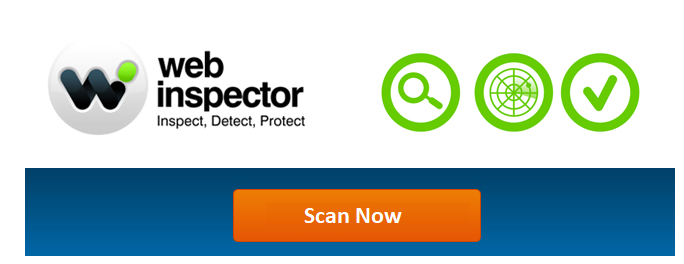Vulnerability testing involves recognizing, classifying, and characterizing security gaps which are known as vulnerabilities among computers and their systems. These include software and hardware systems. Also included are network systems.
Once the assessment uncovers vulnerabilities, disclosure is the next step. The disclosure is carried out by the organization that detected the vulnerability or Computer Emergency Readiness Team (VERT).
What Are Vulnerability Testing Tools?
Vulnerability testing tools are automated tools that browse web applications in search of security vulnerabilities. Some of these include the following:
- SQL Injection
- Insecure server configuration
- Cross-site scripting
- Path Traversal
- Command Injection
Vulnerabilities give nefarious characters (hackers) access to computer
Systems for malicious activities. They play havoc with computer systems
How to Assess Vulnerability Security in a Network
Here are a few steps you may follow to assess vulnerability in your network:
- Identify the approach of your industry in terms of structure and management
- Determine the data, systems, and applications utilized throughout the business operations
- Analyze the unobserved data sources that can allow access to your protected information
- Categorize the physical as well as virtual servers that run fundamental business operations
- Find all the existing security measures that have been implemented
Top 10 Assessment Vulnerability Scanners
Website malware scanners ensure that your web applications are secure by scanning your network for vulnerabilities. On detecting security risks, the scanners can prioritize the ones you need to fix.
Also, they describe the risks detected as well as remedies to eliminate them. Some vulnerability scanners can automate the fixing process making it even easier for you.
Here is a list of the top ten scanners that you may consider using.
1. Netsparker
Hailed for its accuracy, Netsparker is an automated scanner that identifies security risks. These include SQL Injection and Cross-site Scripting. They are found in APIs as well as web applications.
The scanner specifically establishes detected vulnerabilities verifying that they are real. This saves you endless hours manually verifying the recognized risks when the scanning ends. Netsparker is available as a Windows software as well as online service.
2. Comodo HackerProof
This is an innovative vulnerability testing tool that can allay your visitors’ security concerns. It comes with benefits such as:
-
- Decreasing cart abandonment
- PCI scanning tools
- Preventing drive-by attacks
- Scanning for security risks daily
- Boosting visitors’ trust and confidence in your site
- Transforming visitors into customers
Also, HackerProof supplies the visual indicators your visitors need to feel safe as they transact with you. It includes SiteInspector, a scanning technology that boosts security by removing drive-by attacks, thus facilitating website malware removal.
3. Acunetix
This vulnerability scanner tool is fully automated to detect and disclose over 4,500 web application risks. These include all versions of XSS and SQL Injection. Acunetix allows the analysis of complex and verified applications as it supports JavaScript, HTML5, and single-page applications.
It prioritizes risks based on data through viewing and consolidating the scanner’s results into alternative platforms and tools.
4. Intruder
An aggressive vulnerability scanner, Intruder gets to work the instant new risks are released. Also, it comes with more than 10,000 remarkable security audits including for:
- Heartbleed
- SQL Injection
- WannCry
Intruder is popular with startups and SMEs because it facilitates uncomplicated security risk management for small teams.
5. SolarWinds
SolarWinds Network Vulnerability Detection comes with a Network Configuration Manager. It has network configuration abilities that quickly redistribute firmware updates to network devices.
It performs functions that include auditing, managing, and securing network configurations. SolarWinds simplifies and boosts network compliance. The network Configuration Manager sends you alerts when configurations change.
The scanner allows you to create configuration backups that assist the monitoring configuration alterations. It also shows you the IDs through which the alterations are made. This helps you to recover them faster.
6. Nexpose Community
This is an open-source tool that browses for vulnerabilities and also implements a host of network audits. Nexpose considers the age of the security risk such as the malware kit used and the advantages used by it. It then patches the issue if it is a priority.
The scanner can automatically detect and scan new devices to assess risks when they connect to your network. It monitors exposure to security risks and quickly acquaints itself with the current threats with new data.
7. OpenVAS
As the name insinuates, OpenVAS is an open-source tool. The scanner is a central service that supplies tools for scanning vulnerability as well as management of the same.
Benefits include the following:
- Services are free and licensed under GNU General Public License(GPL)
- Supports a wide range of operating systems
- The scan engine is regularly updated with Network Vulnerability Tests
8. AppTrana
AppTrana is an automated vulnerability test tool that identifies and reveals threats hinged on OWASP top 10. Its features include:
- Contemporary crawler that scans single-page applications
- A pause/resume feature
- Additional Manual (allows testing and publishing on the same dashboard)
- Automated expand control coverage from real traffic data
- Around the clock support
- Free trial with an all-inclusive single scan
9. Nikto
An open-source scanner, Nikto is popular and used to analyze plausible threats. It is also used for:
- Checking whether server versions may be outdated
- Scanning for problems that interfere with the server’s functions
- Checking out protocols such as HTTPS, HTTP, HTTPd and more
- Scanning a server’s multiple ports
10. Tripwire IP360
It is used by many organizations and agencies to handle their security threats. The scanner uses a host of networks to detect threats, applications, configurations, networks, and more. It employs open standards to facilitate the assimilation of risk management and vulnerability into various business processes.
Conclusion
Vulnerability testing tools not only detect and disclose threats but also facilitate the elimination of the same.
Related Resources:
Website security check
Website Backup
DDoS Attack
Security Check Website
Check Website for Security
Website Scan
Check Website Safety
Link Checker Virus








